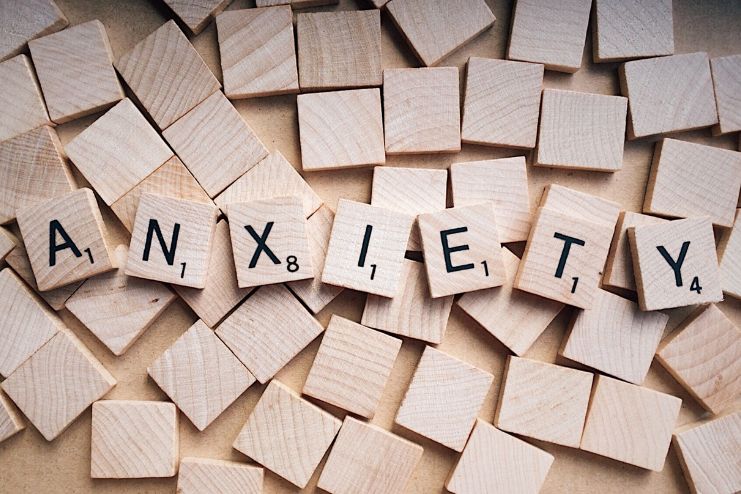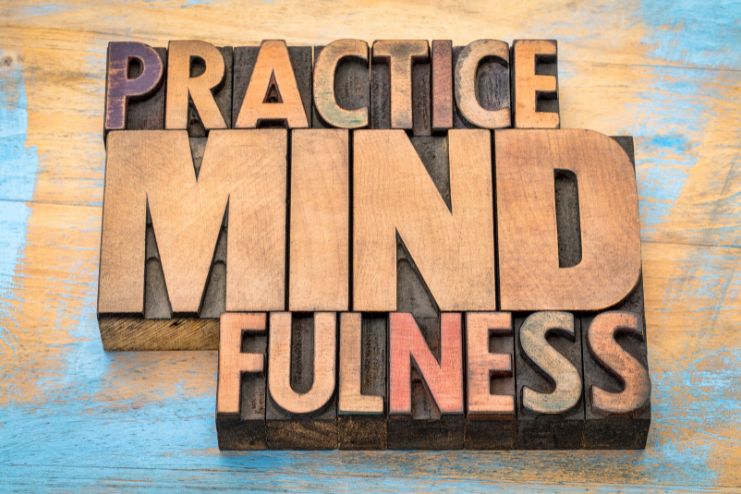Affiliate Disclaimer
Some links in this article are affiliate links. We may earn a small commission if you make a purchase through these links, at no extra cost to you. We only recommend products we find useful to our readersEmotional numbness is like sitting outside of your life, observing as if you’re a bystander and not the one participating in it. You laugh when you’re supposed to, and nod during conversations, but at a deeper level, everything feels empty. This sense of emotional detachment makes even the most joyful moments feel muffled and detached.
Most people believe emotional numbness indicates resilience or apathy, but it is far from the truth. It usually results from mental illness, ongoing stress, or a history of trauma as a coping mechanism to shield oneself from crushing feelings. The best news? It’s temporary. Awareness is the first step back toward sensing again and enjoying life.
In this article, we will understand what drives us towards emotional numbness, and a few practical yet effective tips to overcome this situation.
Causes of Emotional Numbness

Emotional numbness doesn’t develop overnight. It takes time through a combination of psychological, neurological, environmental, and even chemical processes. Knowing these causes can allow you to begin the process of healing. Here’s a closer examination of what may be causing this emotional disconnection.
Read More: Treatment For Anxiety Breathing – Know How To Stop.
Psychological Factors:
Psychological factors that might be a reason for emotional numbness include:
- Depression and Anxiety Disorders: Disorders like depression and anxiety disrupt brain function, making emotions feel distant or unreachable. Depression usually fosters an intense sense of emptiness, while anxiety can lead to emotional exhaustion due to constant worry.
- Post-Traumatic Stress Disorder (PTSD): Survivors of trauma might feel numb emotionally as a coping mechanism. The brain represses intense emotions to prevent reliving painful events, establishing a protective shield that numbs all emotions, positive ones included.
- Burnout and Chronic Stress: Chronic exposure to stress, whether at work, in personal responsibilities, or continuous crisis drains you emotionally. This burnout results in emotional detachment, where the brain focuses on survival rather than emotional involvement.
Neurological and Biological Reasons:
Apart from psychological causes, biological reasons also might make you emotionally numb. These might include:
- Chemical Imbalance of the Brain: Neurotransmitters such as dopamine and serotonin control emotions, and an imbalance can make it hard to be happy or excited. Lower levels of dopamine, for instance, are associated with apathy and emotional flatness.
- Hormonal Changes: Chronic stress boosts cortisol production, which can dampen emotional reactions. Fluctuations in adrenaline can influence how strong emotions are felt.
Environmental and Social Influences:
Environmental factors or social influences that affect your emotional well-being, include:
- Emotional Suppression as a Result of Upbringing: If emotions were discouraged in childhood, you might have automatically learned to suppress them. With time, suppression becomes second nature, and emotional expression becomes challenging.
- Trauma or Chronic Emotional Distress: Repeated exposure to emotionally distressing experiences can lead the brain to close down feelings as a survival mechanism, resulting in long-term emotional detachment.
- Social Isolation or Emotional Disconnect: People are designed to be connected, and without strong social connections, they can end up feeling numb emotionally. Without an ongoing emotional connection, feelings gradually become muted.
Medications and Substance Use:
Certain medications can also cause emotional numbness including:
- Antidepressants: Certain medications, especially selective serotonin reuptake inhibitors (SSRIs), may induce emotional blunting as a side effect. While they stabilize mood, they will also dampen excessive highs and lows.
- Substance Abuse:Drinking too much alcohol, drug use, or even the abuse of prescription medications can desensitize emotions after a while, so it becomes more difficult to feel intensely connected to experiences or individuals.
Symptoms and Warning Signs of Emotional Numbness
Identifying emotional numbness is important in solving it. Here are important signs:
- Feeling Disconnected: Detachment from feelings, things around you, or even yourself.
- Lack of Joy or Excitement: Activities that were once fun no longer yield happiness or contentment.
- Difficulty Expressing Emotions: Having trouble expressing or even identifying emotions, positive or negative.
- Increased Reliance on Distractions: Using more escape methods like excessive social media activity, binge-watching, or playing video games.
- Physical Symptoms: Insomnia, chronic fatigue, or muscle tension frequently associated with repression of emotion.
- Being an Observer in Your Own Life: Experiencing life in a way that is not connected or present. You feel like a spectator in your own life and not the main character.
How Emotional Numbness Impacts Your Life

Emotional numbness doesn’t only affect what you feel, it touches almost every part of life, often in ways you might not even notice. It can turn even the most thrilling experiences into blandness, disrupt relationships, and disturb daily functioning. If left untreated, it has the potential to cause chronic mental health challenges. Understanding these signs can help you seek help to regain connection with your emotions.
- Mental Health Consequences: Chronic numbness raises the risk of developing depression and anxiety, which further perpetuates the cycle of numbness.
- Interpersonal Relationships: Numbness can impair emotional connection with others, causing strained relationships, misunderstandings, and loneliness.
- Daily Functioning and Work: Numbness can decrease motivation, creativity, and productivity, which makes it hard to carry out daily tasks or be satisfied with one’s work.
Read More: What Is High-Functioning Anxiety? Signs You May Be Overlooking.
Why Do I Not Feel Anything Even in Happy Moments?
You might experience feeling numb even in joyous events. This could be a warning that your brain is sheltering you from both negative and positive emotions too much. Perhaps it is an acquired mechanism as a response to trauma, incessant stress, or the aftereffects of medicines.
How to Regain Emotional Connection and Joy

Breaking emotional numbness involves deliberate action to re-establish a connection with your feelings. It’s a process that takes time, but with the right strategies, you can start to feel alive and present in life once more. These are some of the best ways to regain emotional connection and find joy again.
Mindfulness and Awareness:
- The first step is to identify emotional numbness as a defense mechanism.
- Practice self-reflection using journaling or meditation to become aware of emotional blockages.
Emotional Reconnection Techniques:
- Start small and revisit pleasurable activities, even if the enjoyment doesn’t come right away.
- Practice gratitude by noticing good things in everyday life.
- Experiment with expressive writing or art to examine and convey emotions without using words.
Therapeutic Approaches:
- Cognitive Behavioral Therapy (CBT)assists in recognizing and modifying negative thinking patterns.
- Eye Movement Desensitization and Reprocessing (EMDR)works for trauma-induced numbness.
- Talk Therapy offers a secure environment to discuss repressed feelings with the help of a therapist.
Read More: Say Goodbye to Anxiety: Transformative CBT Techniques to Regain Control.
Lifestyle Changes:
- Physical Activity: Exercise increases mood-boosting chemicals such as endorphins and serotonin.
- Stress Reduction: Practice relaxation methods like deep breathing, progressive muscle relaxation, or yoga.
- Social Support: Reconnect with Loved Ones: Spend time with friends and family to reestablish emotional connections.
- Seek Professional Help: If numbness continues, seeking the advice of a mental health professional can offer insight and personalized solutions.
Read More: Best Mindfulness Journals for Anxiety and Self-Reflection.
When to Seek Professional Help

When emotional numbness persists for weeks or months and affects daily functioning, it’s time to get professional assistance. Also, if numbness is combined with suicidal thoughts, extreme depression, or total social isolation, immediate professional intervention is required.
Read More: Sensory Deprivation Tanks: Can Floating Help Reduce Anxiety?
Final Thoughts: Moving Toward Emotional Healing
If you’ve been feeling numb, you should know that you are not alone and more importantly, you are not stuck. This is not a personal failure but an indication that your mind has been defending you, in a way. The good news is that healing is possible.
Reconnecting with your feelings requires patience and time. Small steps, such as mindfulness practice, doing meaningful activities, and seeking support, can slowly restore the depth of feeling you might have lost.
If emotional numbness is interfering with your life, don’t wait to get help. Therapy, self-care, and social support can all be a part of your return to being present and involved again. You are worthy of experiencing life to the fullest, with all its beauty and depth.
Emotional numbness is reversible. With effective strategies and adequate support, individuals can reconnect to their emotions and rediscover the joy of life. Healing comes with time, but small consistent steps can bear great results. Prioritizing mental health and seeking assistance as and when necessary is the magic formula for resuming emotional balance.
References
- https://www.verywellmind.com/emotional-numbing-symptoms-2797372
- https://www.cdc.gov/tobacco/campaign/tips/diseases/depression-anxiety.html
- https://link.springer.com/chapter/10.1007/978-981-99-7508-2_5
- https://www.medicalnewstoday.com/articles/326649
- https://www.ncbi.nlm.nih.gov/books/NBK554406/
- https://pmc.ncbi.nlm.nih.gov/articles/PMC8489050/
- https://pmc.ncbi.nlm.nih.gov/articles/PMC7839656/
In this Article
















